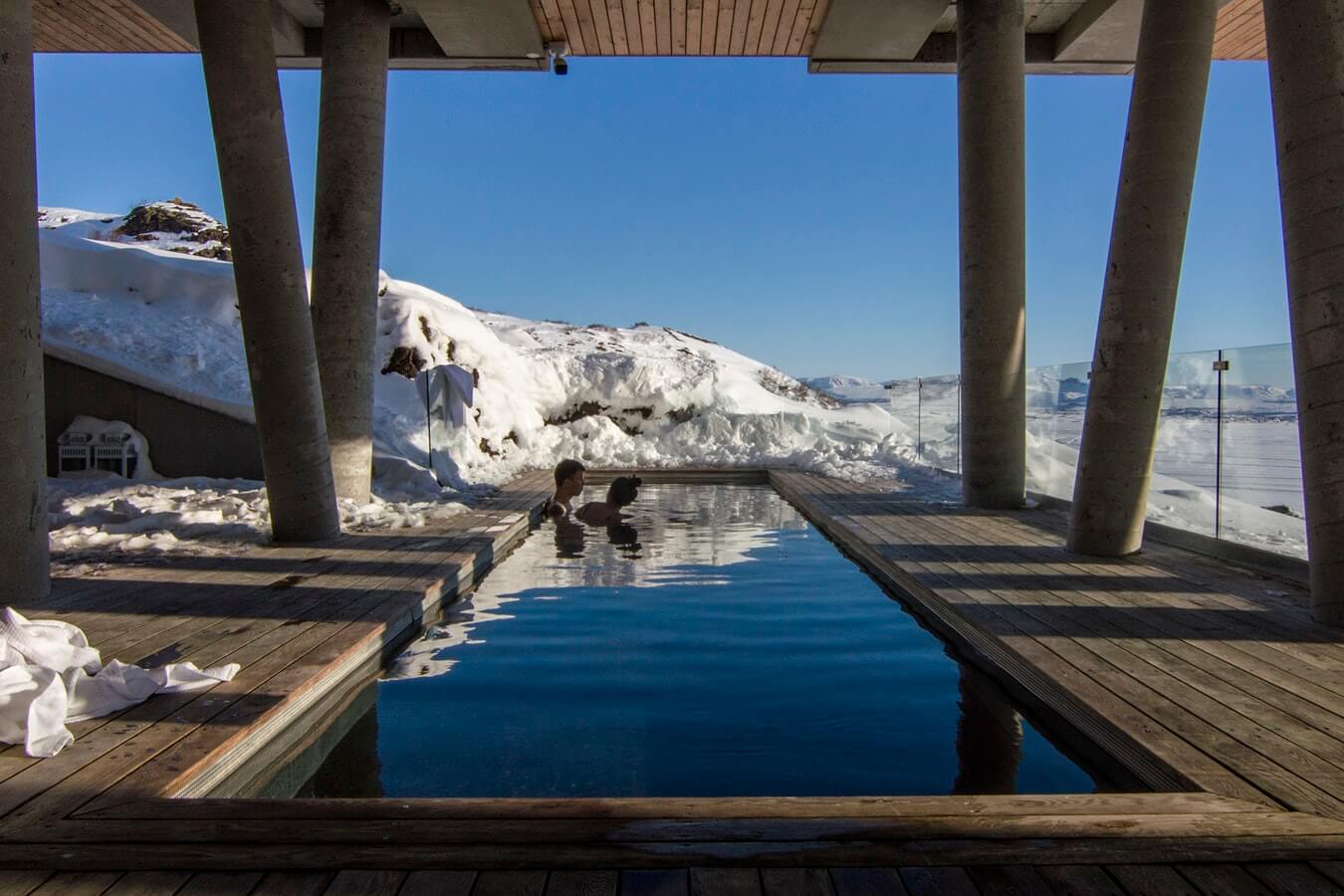
A How-To Guide to Winterizing an In-Ground Salt Water Pool
Sadly, winter is often too cold to keep inground pools open year-round. That said, if you’ve got a heated pool or have easy access to a custom spa or hot tub, then with a bit of winter prep, you’re all set to enjoy it even as temperatures drop.
Of course, for most Canadians, an all-season heated pool is just too much of an investment. It’s much easier to winterize and put your pool enjoyment on hold during the off-season. If you’ve recently made the switch to a saltwater pool, you’re also going to have to winterize and shut it down for the season.
Because saltwater pools have a few key differences with their chlorinated counterparts, there are a few things you’ll have to keep in mind when you close for winter. The good news is that closing a salt water pool is very similar to closing a chlorine pool!
We’ve put together some of these
For tips to on how to winterize an inground saltwater pool, use this how-to guide and consult with the pool experts for professional advice.
What Does Cold Weather Do to Saltwater Pools?
Instead of manually adding chlorine to your pool, saltwater pools use a saltwater chlorinator (SWC) to create chlorine from salt. Most saltwater chlorinators have sensors that measure the conductivity of water. Therefore, if more salt is required to maintain the conductivity and chlorine levels, then the saltwater chlorinator will notify the pool owner.
Tips For Maintaining A Saltwater Pool
Saltwater pools require the same regular cleaning and maintenance as traditional in-ground pools. However, instead of adding chlorine, you add salt to your water and let the chlorine generator add the chlorine for you.
Be sure to thoroughly clean and vacuum your pool regularly. And also test the water’s salt levels, pH, total alkalinity, and calcium hardness, adding salt and chemicals as needed to balance the water.
Will My Saltwater Pool Freeze?
Yes, they will! Saltwater pools only have a fraction of the salinity of ocean water, so they will freeze in Ottawa’s cold winter temperatures. This is why it’s important to drain the water to below the skimmer and blow out any lines when closing the pool for the winter.
Is It Necessary to Drain A Saltwater Pool?
Yes, but don’t drain your pool completely. Like traditional pools, you must drain the water from your saltwater pool to below the filter system’s water return outlets in the wall. Any water that gets into the pool’s plumbing and filter can freeze and crack these components, resulting in costly repairs come spring.
Preventing Pool Stains in A Saltwater Pool
Along with regular cleaning, anti-stain agents can help prevent stains in saltwater pools.
During the winter, minerals in the pool water will settle on the sides and bottom of the pool. These can lead to stains, such as a ring around your pool, come spring. To help prevent stains, add a scale and stain sequestrant for saltwater pools.
Why You Should Hire the Pros
If you’re not thorough when closing your pool, any mistake you make throughout this process could result in thousands of dollars in damage. Save yourself from a headache and the potential extra costs next spring and consider hiring the pool closing professionals.
They will take every step necessary to ensure your pool stays clean and safe all winter long so that when it is time to open your pool next spring, you won’t be surprised by unpleasant green water or cracked plumbing.
7 Steps to Winterize Your Saltwater Pool
Step 1: Clean
Use a skimmer net to remove any debris from the pool. Give your pool walls a good scrubbing with a nylon pool brush, making sure to scrub every nook and cranny. Vacuum the pool and run the filter for an hour, then clean the filter.
The cleaner you leave your pool when closing, the cleaner it will be next spring.
Step 2: Test Salt Levels
Instead of relying on the saltwater chlorinator sensors once the cold weather arrives, test the salt levels manually with testing strips. The ideal salt level is around 3,200 ppm. If the salt levels are too high, don’t add any more salt until the levels are down to the ideal level.
Step 3: Balance Chemicals
Before closing your pool, you must test and balance the chemicals. The ideal levels are as follows:
- pH – between 7.2 and 7.8;
- Total alkalinity – between 80 and 120 ppm; and
- Calcium hardness – between 200 and 400 ppm.
Step 4: Add Anti-Staining & Winterizing Agents
Add a scale and stain sequestrant made specifically for saltwater pools. You should also add winterizing chemicals for saltwater pools. Pool closing kits include algaecides that prevent algae growth while your pool is closed.
Make sure to turn on your pump for at least 8 hours to circulate the chemicals throughout the water before closing your pool.
Step 5: Add Enzymes
Add slow-acting enzymes to your pool water before closing. These will remove any contaminants in the water, and are especially useful for pools with mesh covers or covers with drain panels.
If any contaminants get in the water during the winter, the enzymes will destroy them, keeping your pool cleaner in the off-season.
Step 6: Winterizing the SWC, Filter, Skimmer, and Plumbing
Empty and clean your filter and saltwater chlorinator. Refer to the manufacturer’s instructions for winterizing your SWC. You may be able to just remove it and store it inside.
At the very least, you will likely need to unplug it. You may also need to drain all the water from it or leave a mixture of water and non-toxic antifreeze.
Blow out excess water in the pipes and heater using a shop vac. Screw a winterizing skimmer plate onto the skimmer opening and a plug into the return fitting.
Step 7: Cover Your Pool for the Winter
Before covering your pool, place an air pillow or two in the water. These will support the cover over the winter, preventing it from sinking into the pool. Air pillows also prevent large ice sheets from forming and damaging the pool liner.
Once you’ve secured the cover on the pool, weigh it down with water bags to prevent it from flapping in the wind.
Keep an eye on your pool cover over the winter and clear off any snow or ice that builds up. You may also wish to use a pump to keep the cover clear of too much water buildup.
To ensure your pool closing goes smoothly, contact the pool pros for help with your saltwater pool winter maintenance. The bit of money you put into winterizing your saltwater pool now will save you from potential stress and expenses come spring.

Bert Minor has been a part of the landscaping business for nearly twenty years and has gained an excellent reputation as an innovative and creative designer. In fact, several of his designs and projects have been featured in industry supplier magazines. An active and contributing member of the industry, Bert sat on various boards including the Ottawa Chapter of Landscape Ontario and the Landscape Ontario Provincial Construction Committee. Bert also contributed technical articles published in the Canadian National Landscape Association magazine. With a relentless pursuit of knowledge, Bert has attained several industry certificates in landscape design, landscape construction and with the PHTCC—Pool and Hot Tub Council Canada. Prior to joining the landscaping industry, Bert spent several years in management in the services sector primarily in a customer advocate role. His honesty and integrity and his ability to build and develop strong relationships with clients reflects that.
